The goal was straightforward: Create a list of the best television shows from the first half of 2020. We rounded up our television writers and had all of them submit a top ten list. We assigned point values to each entry (10 points for number one, one point for number 10, etc.) to try to come up with a fair, math-based final list. It seemed so simple.
And then… chaos. It turns out there are so many shows — so many good shows, even — that you can have six lists with a very tiny amount of overlap. Shows that were number one on some lists were completely absent from others. Only one show appeared on more than half of the lists. There were ties galore. Just complete anarchy any way you slice it.
The truth is, though, that it’s kind of perfect that our list is a mess. The sheer number of shows available means that everyone can tailor their viewing to their individual interests. It means you can have a group top 10 list that has 12 total shows and honorable mentions and covers everything from horror to cool skate teens to bumbling vampires to felonious lawyers traipsing through a desert. That’s kind of nice, really. It’s a good thing.
God bless us when we make the year-end list, though.
HONORABLE MENTION
Joe Pera Talks With You (Adult Swim)
I don’t know if any other show does more with less than Joe Pera Talks With You. Less can be taken two ways, too: first, because the Adult Swim series runs mostly abbreviated episodes, usually in the 7-10 minute range; second, because very little happens in these episodes. That might sound like a complaint. It’s not. The show has such small stakes — Pera plays a Michigan choir teacher, which is a good tip-off that this isn’t, like, Westworld, plot-wise — that an entire episode can be devoted to going to the grocery store. The was a season-long arc about growing a bean arch that was honestly more satisfying and moving than most dramas I saw this year. The show is funny, strange, sweet, peaceful, soothing, and unlike anything else on television. You can watch the entire season in about an hour on the Adult Swim website. You should do that. — Brian Grubb
The Great (Hulu)
Last year, HBO gave us a very serious mini-series on Catherine the Great, Russia’s infamous empress. She was played by Dame Helen Mirren, and we spent a handful of episodes retracing the final years of her reign amidst wars and political squabbles and romantic entanglements with other very serious men. Hulu’s The Great is not that show. Hulu’s The Great wants to bring a bit of fun back into the oppressive, tyrannical regime of Peter III, Catherine’s husband who she spends most of this new series plotting to murder. Hulu’s The Great is filled with a young cast – think Nicholas Hoult and Elle Fanning – darkly comedic storytelling from The Favourite scribe Tony McNamara, outlandish wigs, campy court life moments, and Pomeranians getting tossed off balconies … for science. It’s an 18th-century punk Russian soap opera and it deserves all the Huzzahs. — Jessica Toomer
The Outsider (HBO)
Look, Stephen King adaptations are hit-and-miss, but this was a success with HBO’s audience, and Richard Price’s tweaks from the book made all the difference. Hell, Freddy Krueger himself, Robert Englund, recognized how well it all worked when we interviewed him earlier this year. He freaking loved this take on Holly Gibney (portrayed by Cynthia Erivo) and described the show like this: “The man is the skeptic, and the woman is the believer! Not only that, but she’s a genius and a savant and has one foot in that voodoo shit, woohoo.” Yep, Erivo and Ben Mendelsohn pulled off the reverse Mulder-Scully thing well, and the show’s scratchy El Cuco unfurling made it meme-able, week after week.
While this show wasn’t perfect — I still don’t understand all the lamp stuff, and my god, some scenes felt like they were shot at the bottom of the Mariana Trench, they were so (literally) dark — this show gave us a ton of characters worth rooting for, even including the atomic-wedgie-brandishing villain, Jack. I also love that Price left Gibney’s fate wide open with a swell second-season set up. El Cuco must return for more. — Kimberly Ricci
10. (tie) Bojack Horseman (Netflix)
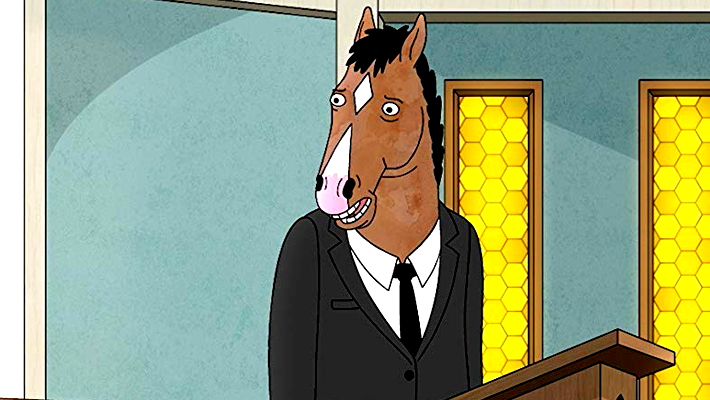
Remember Game of Thrones? The biggest show on TV, Emmy winner, a cat named Ser Pounce, etc. Ringing any bells (too soon)? Do you also remember how let down you were by the series finale? I’m not bringing up “The Iron Throne” to pick at wounds that probably still haven’t healed. I’m using it to prove how even the best shows can struggle with final seasons — and finales, in particular. They’re tough! But BoJack Horseman, which was somehow both the funniest and saddest show on television/Netflix/whatever, did not pull a Game of Thrones. The second half of the final season (the first six episodes aired in 2019) was as good as the show has ever been, and considering it’s my favorite show of the 2010s, that’s high praise. — Josh Kurp
10. (tie) Defending Jacob (Apple+)
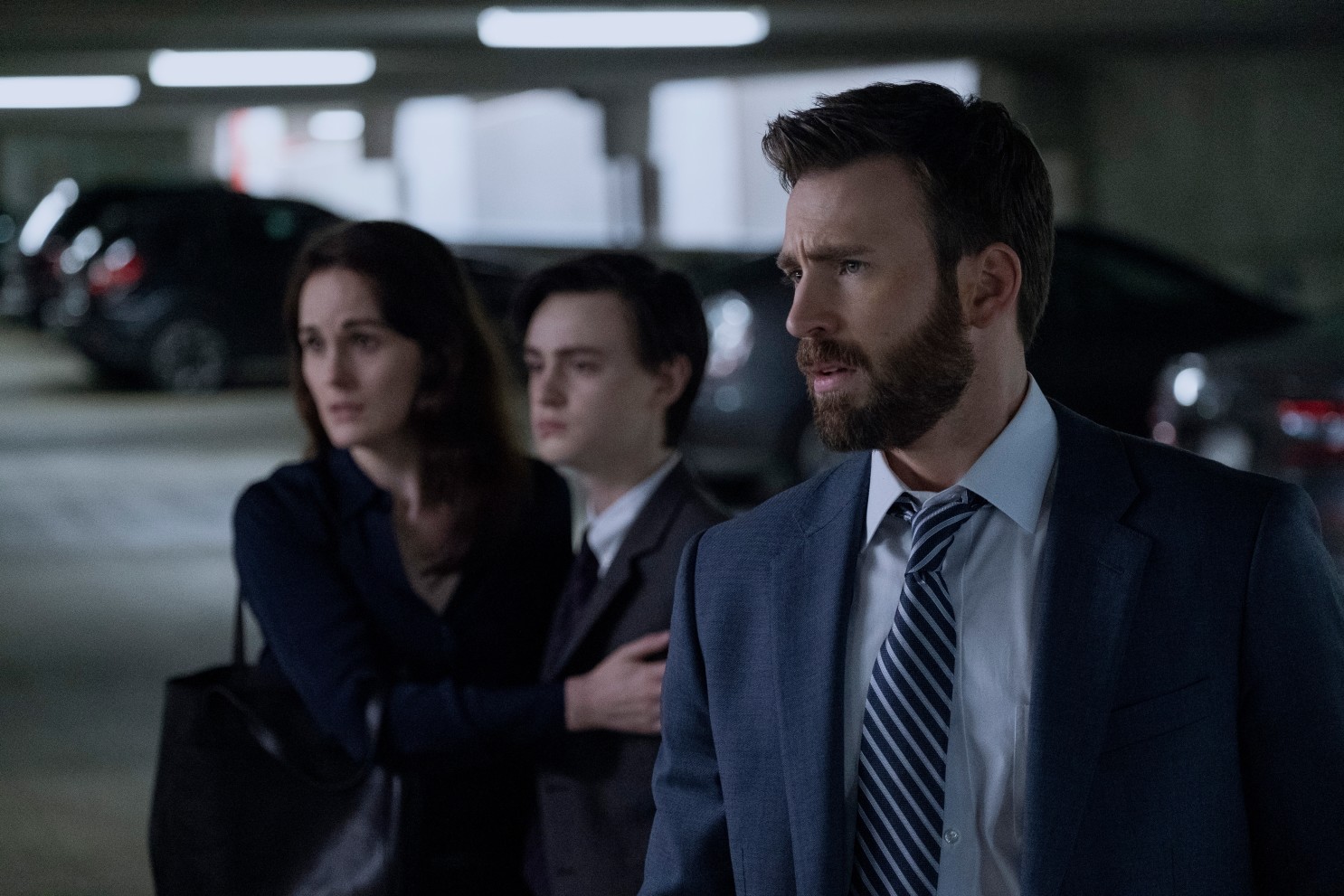
Defending Jacob pulls the thread on a picture-perfect American family to see how they unravel while, at the same time, posing questions that pit love and family against morality. Questions that demand a beat and some nuance when assessing what we’d do in our own lives if presented with them. It’s the kind of package we’ve seen before, but delivered with an uncommon level of polish with a cast that stands out. And not just Chris Evans, flexing dramatic muscles that had been on the shelf for a time. Michelle Dockery also shines as an anguished mother, as does 17-year-old Jaeden Martell as the boy at the center of the storm. — Jason Tabrys
10. (tie) Mythic Quest (Apple+)
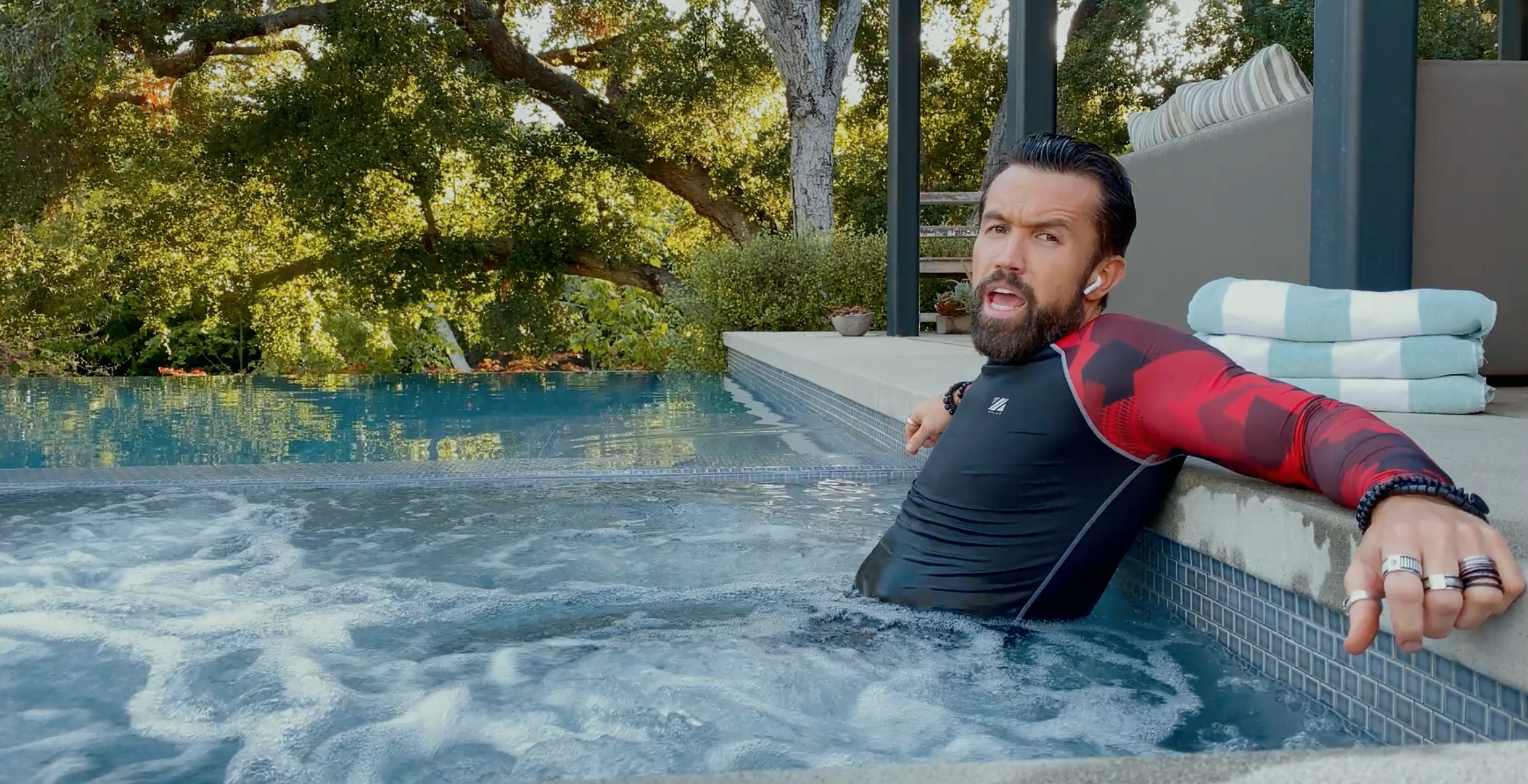
Mythic Quest: Raven’s Banquet — from Rob McElhenney, Charlie Day, and Megan Ganz — is a great, hysterically funny and occasionally warm series that feels like It’s Always Sunny crossed with Community set in a workplace devoted to a video-game development. There’s a frenzied energy that makes it easy and exciting to follow its characters on their misadventures, questing for validation, vanity, and petty vengeance, as the series thematically confronts issues about creativity versus commerce. It’s sometimes absurd, and often satirical, and — from what I understand — a fairly good representation of what it looks like inside of a video-game development company. Nine of the first season’s ten episodes are terrific, but the fifth episode — a stand-alone ep written by Rob’s sister, Katie McElhenney — transcends the reset of the series, and joins the quarantine episode as two of the very best sitcom episodes of 2020. — Dustin Rowles
7. (tie) Ramy (Hulu)
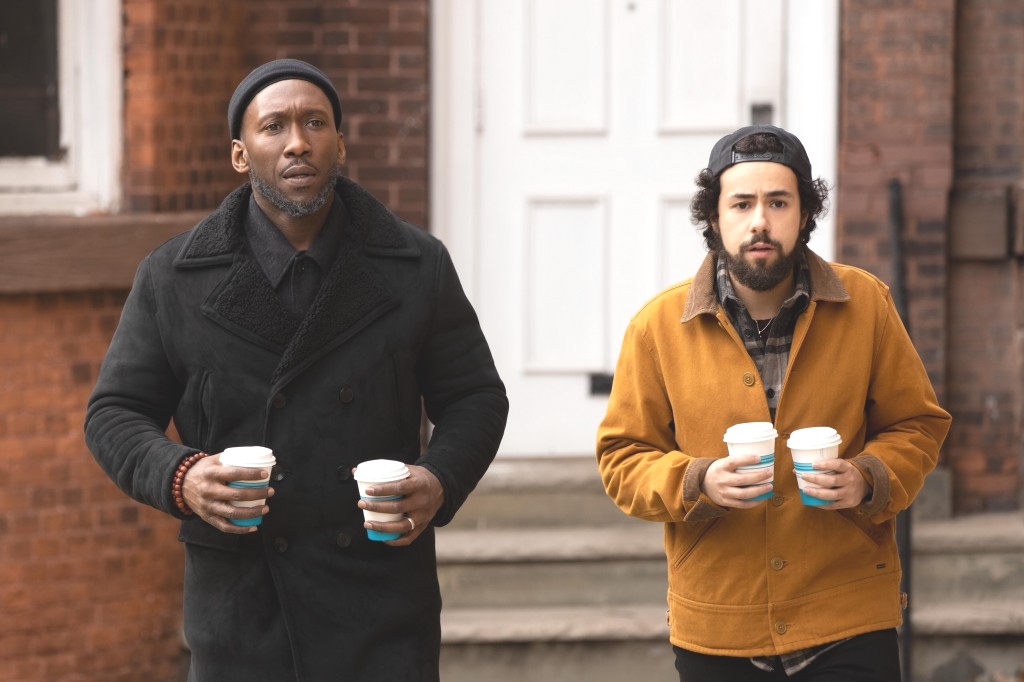
There’s one scene from the excellent second season of Ramy that I keep thinking about, one that, I believe, sums up the show. It’s in episode six, “They,” the one where Ramy’s mother Maysa has her Lyft driver account suspended after receiving a negative review from a passenger. The suspension, which she fears could lead to criminal charges, couldn’t have come at a worse time, either, as she’s about to take her American citizenship test. After an awkward run-in at a bar with a trans customer (some might call it “stalking”), Maysa passes the test, and while being sworn in as a citizen, she looks at a picture of President Donald Trump and says, “I’m not like you, Trump. I will f*ck you. I will f*ck your pussy and grab it before you grab mine or Dena’s. I will vote you away you piece of f*cking f*ck-sh*t. I am here to stay, bitch.” That, in a nutshell, is Ramy. It tackles delicate issues – whether it’s racism, misogyny, misgendering, or having sexual feelings for your cousin — with bleak, character-based humor; and in season two, the show’s universe continued to expand, with the introduction of Oscar winner Mahershala Ali as a sheikh and an entire episode about Uncle Naseem’s eating-an-entire-cake-by-himself loneliness. (It’s the rare show that’s at its best when it’s not about the titular character.) Maysa isn’t like Trump, as she makes very clear, but more shows should be like Ramy. — Josh Kurp
7. (tie) Brockmire (IFC)
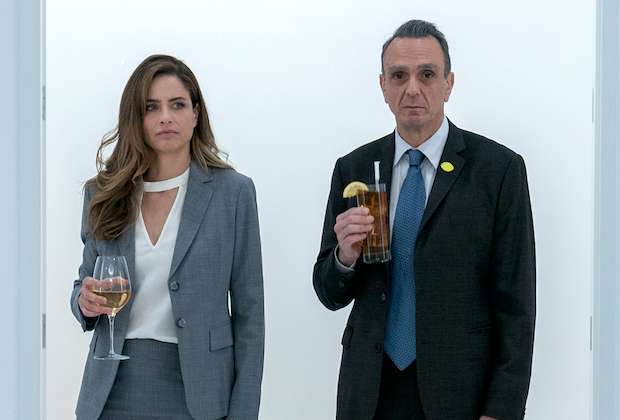
What started as a show about a drunk lecherous lout amidst the backdrop of minor league baseball in a pulseless American town somehow became a redemption song about a sober lecherous lout scraping his way back to the big leagues and some semblance of (literal and metaphorical) uprightness. And then, in its final season, said lout somehow became commissioner of baseball amidst the backdrop of a dystopia. It reads like a fever dream but plays like a consistently uproarious comedy and increasingly smart satire, anchored by Hank Azaria in what is probably his best role. Four seasons and 32 episodes hardly seems like enough but they got all of this one. — Jason Tabrys
7. (tie) Betty (HBO)
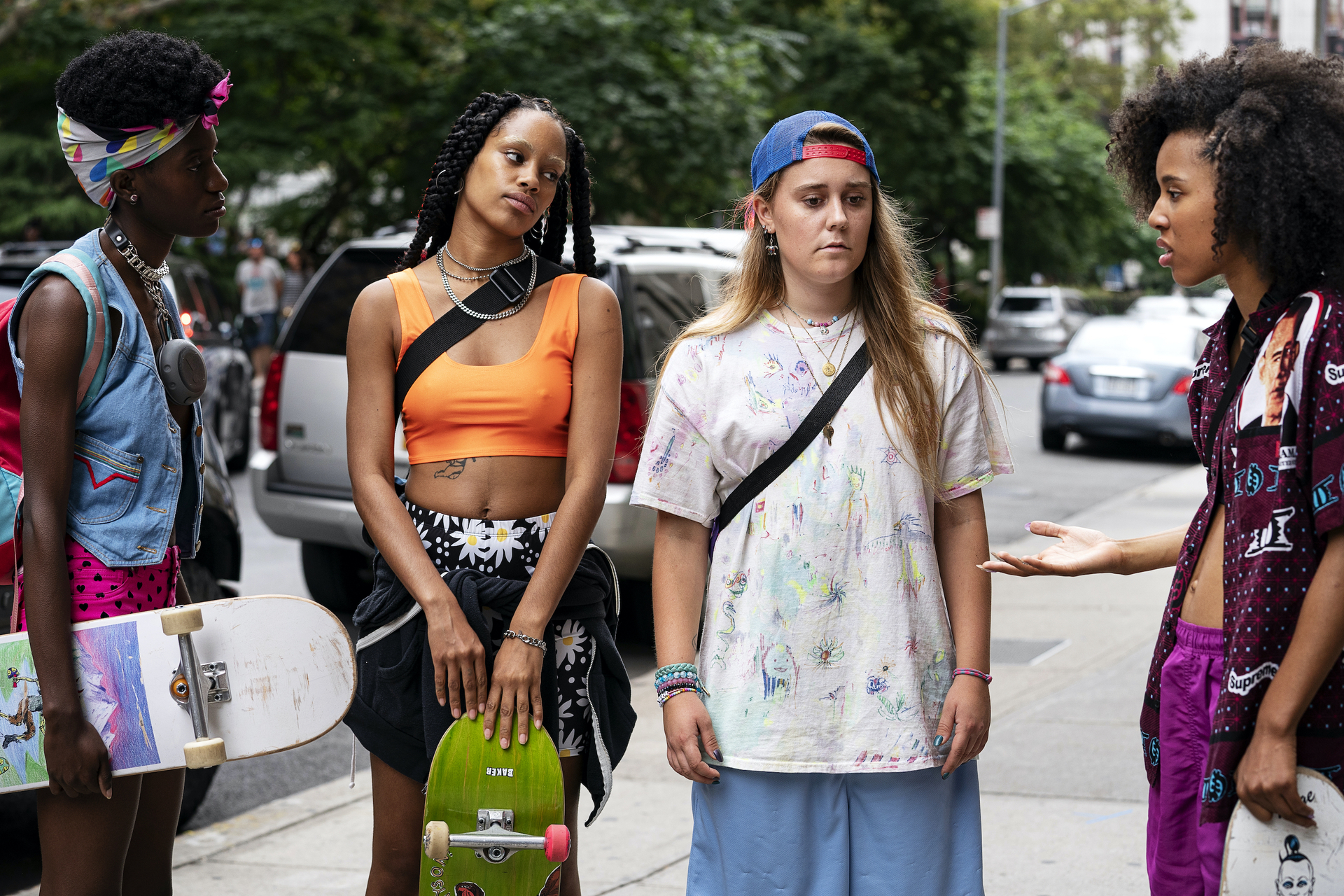
Well, I think this show is cool, and Brian Grubb thinks this show is cool, so what more enticement do you need to give the Skate Kitchen ladies a shot? Here’s a slice-of-life project, and an authentic one, where we can watch real-life skaters (who aren’t Actors with a capital “A,” in fictionalized roles) who simply want to skate. It’s beautifully shot by director Crystal Moselle, who found this group of skaters to be so cool that she wanted to give us a glimpse into their freewheeling world. The end result is that we, like Moselle, want to follow them and see what happens next, even if they’re only spending a day tracking down a backpack or getting high or hanging out with an albino rat named Perstefanie. — Kimberly Ricci
6. High Fidelity (Hulu)
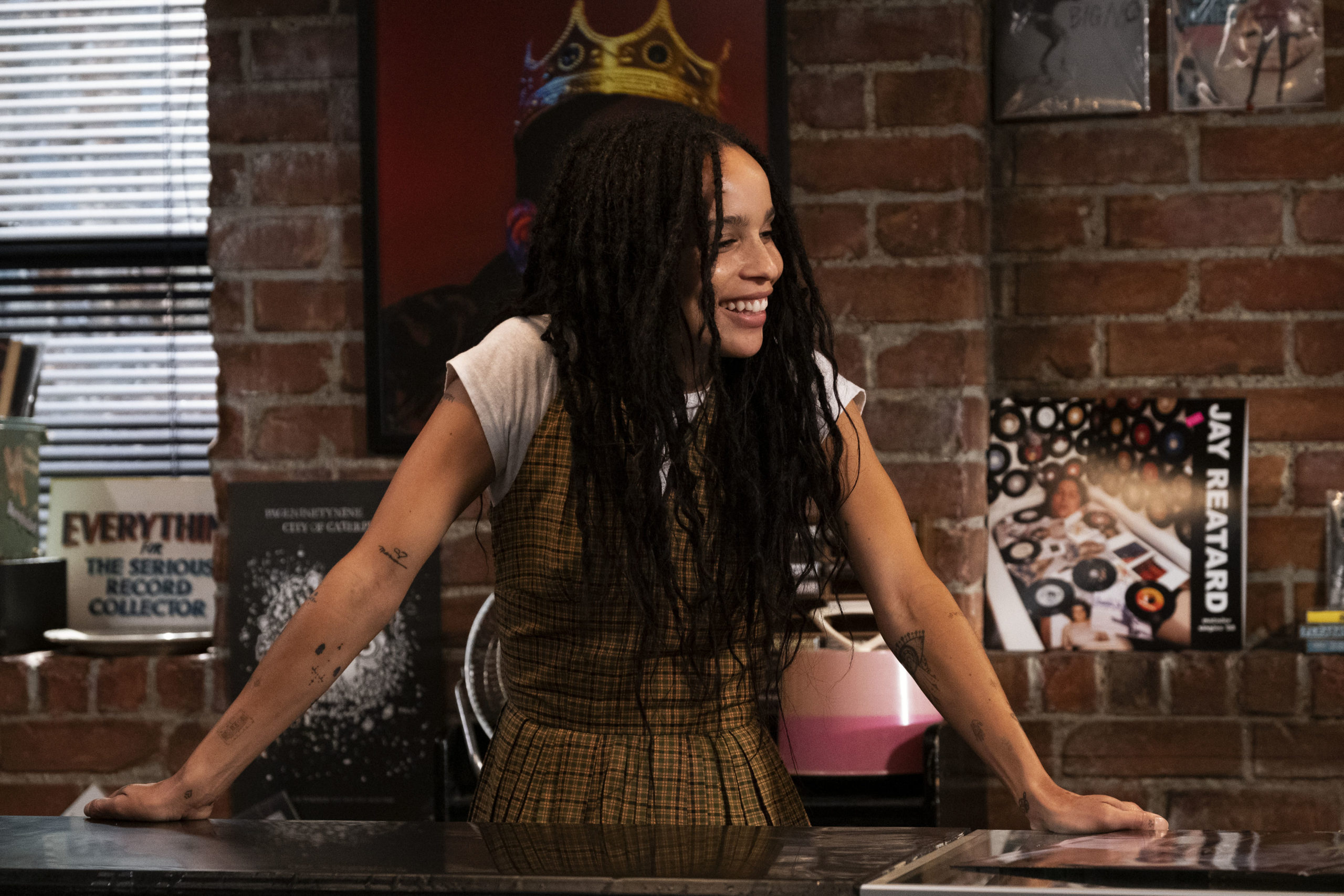
Full disclosure up front: I did not expect to like High Fidelity, the TV show produced by Hulu. I rolled my eyes at it a little when I first heard about it. I filed it under another cheap play at reimagining existing intellectual property, in this case, both a book and John Cusack movie of the same name. But then I watched the first episode. And the second episode. And the third. And then I looked up and realized I had binged the whole season in about 48 hours. There are a few takeaways from this story: High Fidelity is a good show, and I am an idiot.
A lot of the credit here goes to Zoe Kravitz, who plays the gender-swapped lead in the series, the one who breaks the fourth wall and talks to the audience about her breakups and dates and self-destructive behavior related to both. She’s super good and super charismatic, which is very important in a show where the audience has to care about a main character who is kind of a mess and kind of a jerk. The result is a warm, fun show about friends and life and figuring stuff out by pushing through it, even when it stinks. It’s another reminder that a show doesn’t need a huge concept — dragons, outer space, etc. — to be compelling and captivating. And a reminder, again, that I am an idiot. — Brian Grubb
5. Normal People (Hulu)
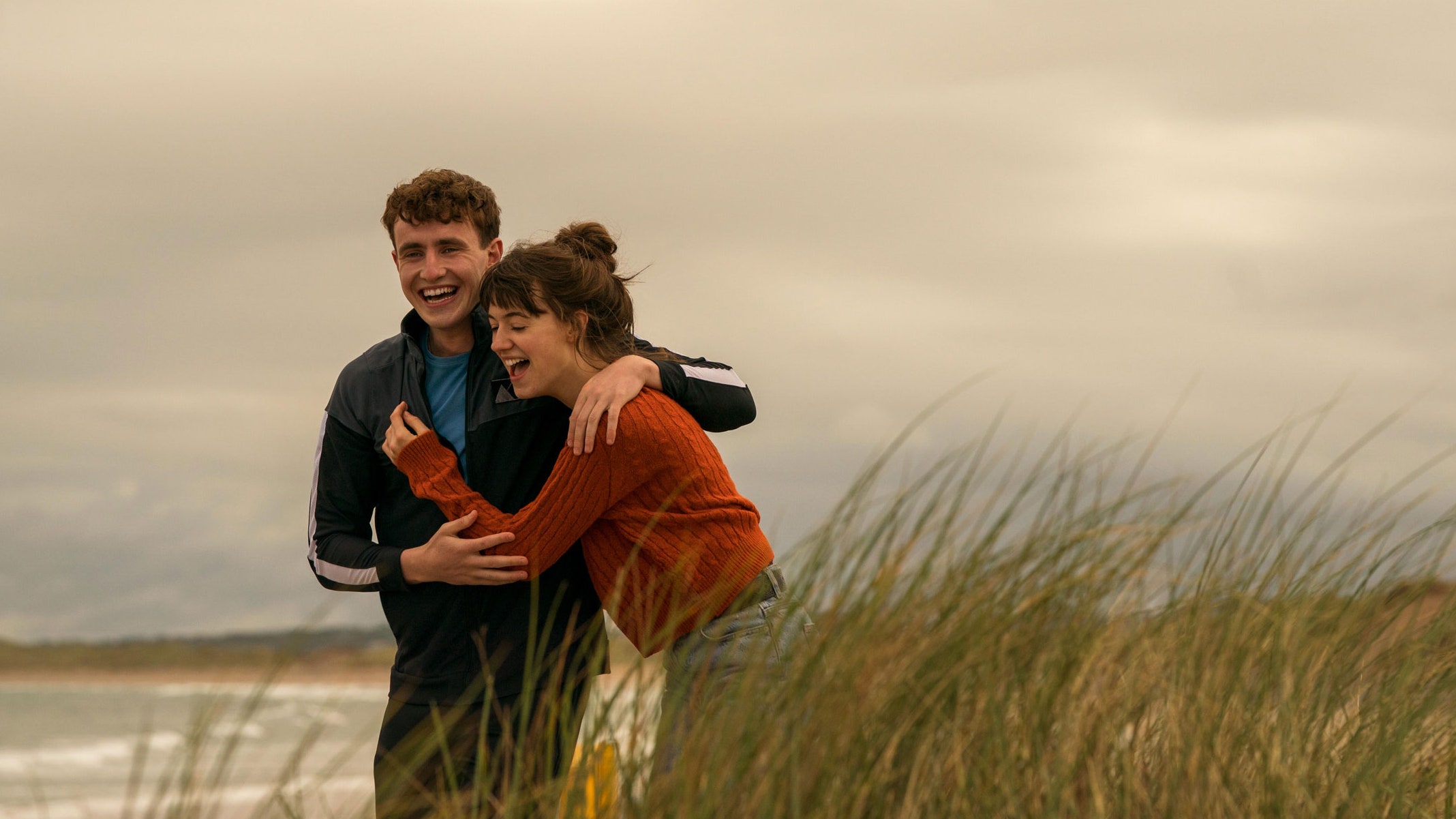
Hulu’s Normal People is about two flawed people, Marianne and Connell, who fall madly, madly in love in high school but who are kept apart through their time at university by their own mental and emotional issues. He’s poor but well-liked and suffers from depression. She’s from an abusive family. They both have major insecurities, which drive their inability to stay together, and it hurts because they are so obviously otherwise perfect for one another. To see these two characters played by Daisy Edgar-Jones and Paul Mescal circle around each other for years but never maintain their connection hurts in deeply psychic ways, which makes it a achy, soulful sexy, and impossible-to-stop-watching romantic series. — Dustin Rowles
3. (tie) What We Do in the Shadows (FX)
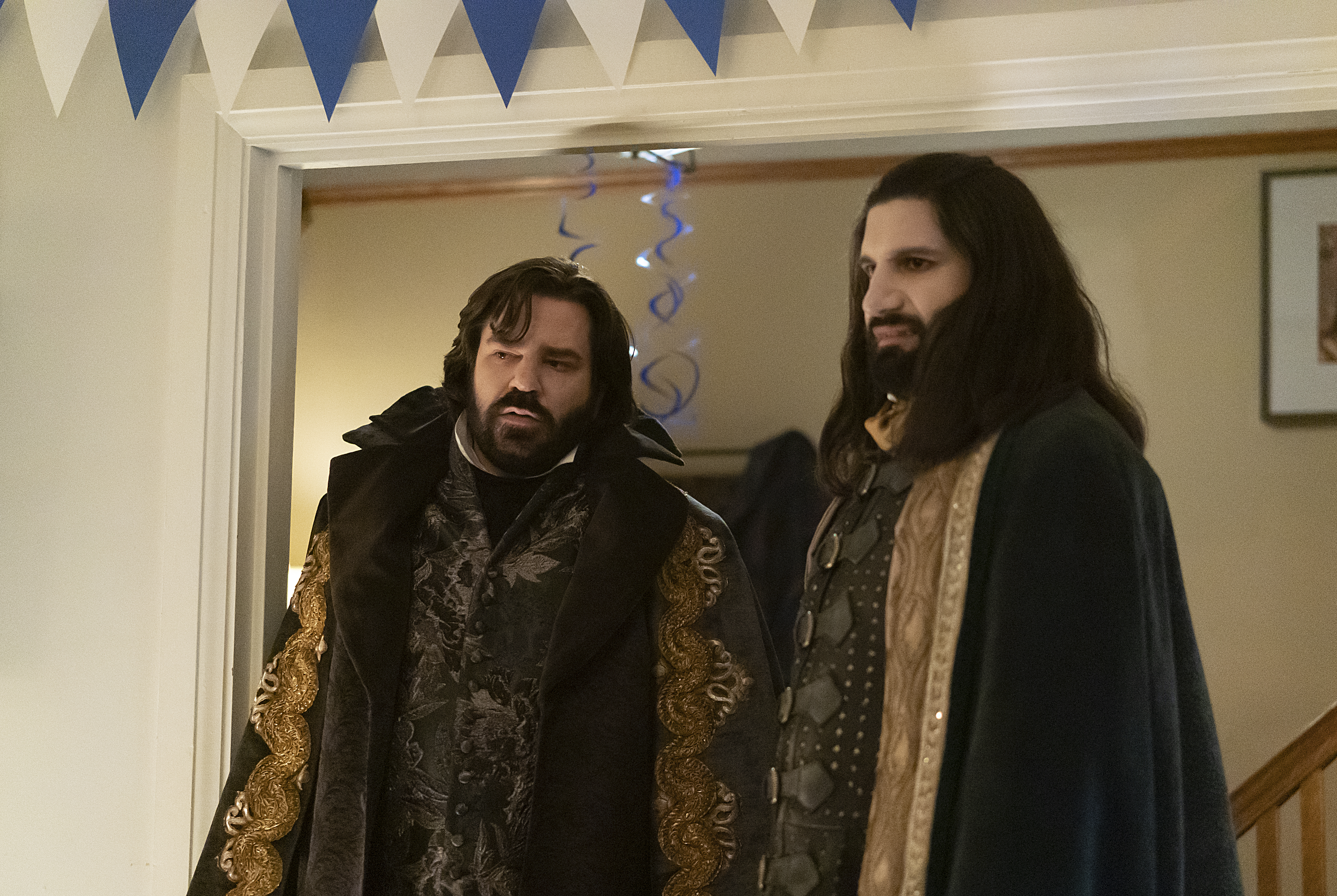
I refuse to feel shame that practically all of my picks for good shows in 2020 were comedies. We need a reason to laugh while the world burns. But I’m particularly proud of how bloody brilliant the second season of this FX mockumentary was. After carving out its own distinct space separate from its film predecessor with its first season, WWDITS was given the time and story development it needed to really fly in season two – as long as it yelled “Bat!” first. Vampire councils, semen-thieving witches, Haley Joel Osment as a zombie, and small-town American hero Jackie Daytona were just a few highlights of the show’s sophomore run and really, the only thing we’re looking forward to next year is seeing how they top it. — Jessica Toomer
3. (tie) Schitt’s Creek (POP)
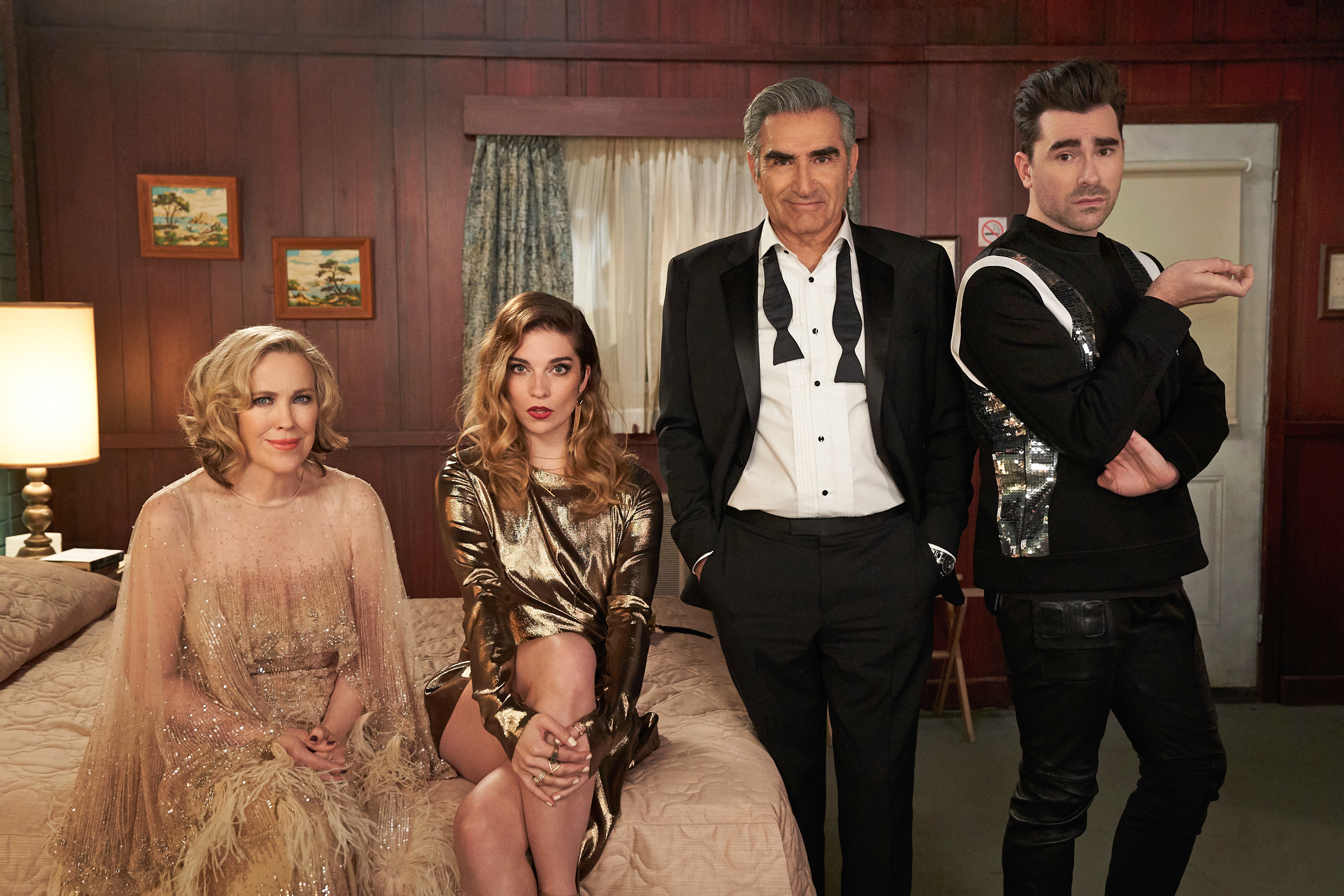
Even if we weren’t faced with a global pandemic and cannibal rats, 2020 would still be trash because it marked the end of one of the best comedies to ever grace our TV screens. Schitt’s Creek started as a fairly straightforward human experiment – toss a family of out-of-touch one-percenters into the social cesspool of a small Canadian town and see how (or if) they survive. But thanks to a cast that included legends Catherine O’Hara and Eugene Levy, and some carefully crafted, slow-burn character development, what Schitt’s Creek ended it’s run as was a beautiful sum of all it’s eccentric, over-the-top, “Eww David” parts. Few shows would be bold enough to lower the curtain just as they were beginning to enjoy critical attention, and hardly any could pull off the final season that this series delivered – one filled with weddings and breakups and bedwetting and a crowpocalypse. We’ll miss you, Roses. — Jessica Toomer
2. I May Destroy You (HBO)
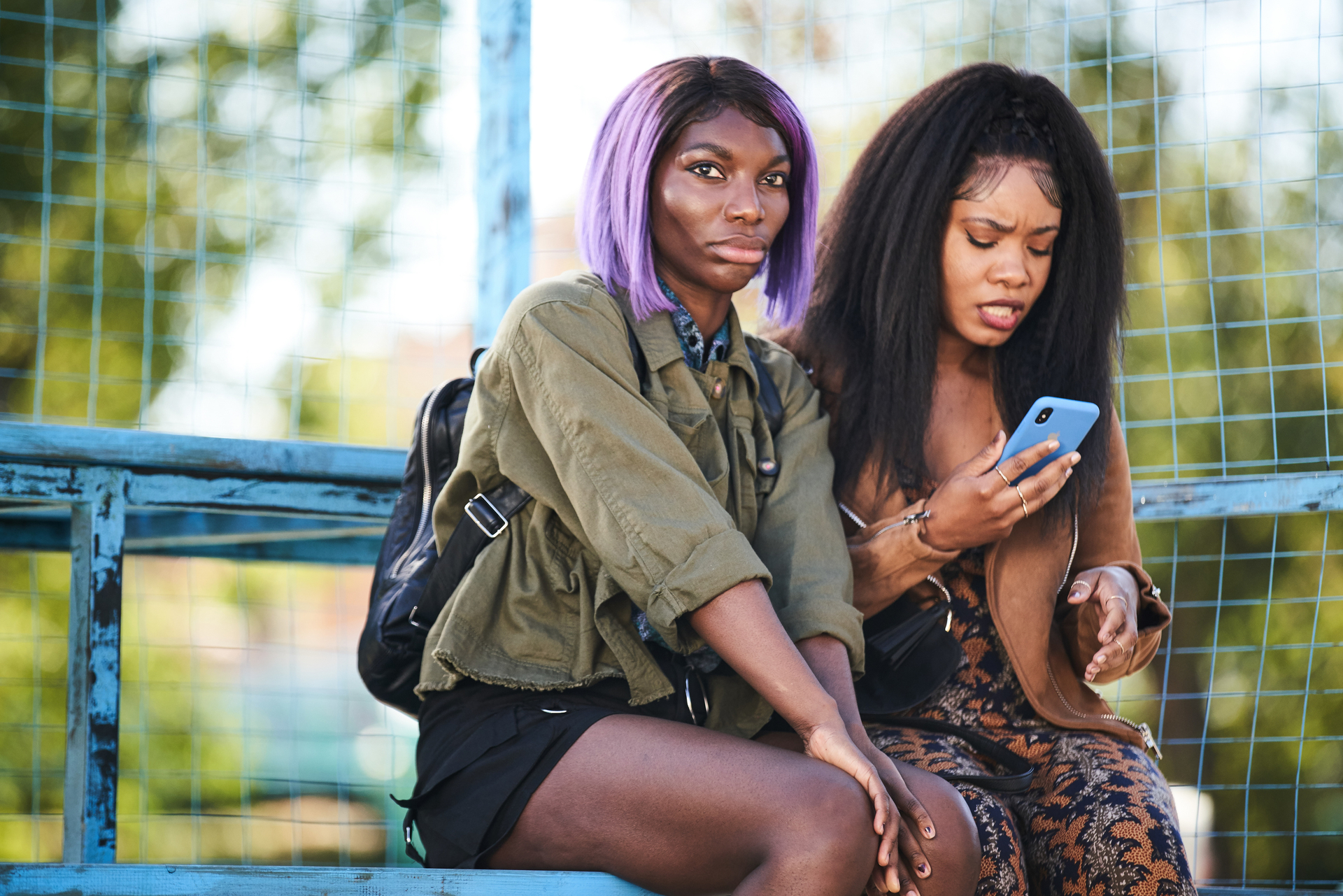
This show’s even better than the act of typing “I MAY DESTROY YOU” in all caps, which is a great stress reliever. Really, try it now. You’ll see. Seriously though, creator, writer, and star Michaela Coel is an audacious creative force, not to be ignored. She’s also a twisted firestarter (no spoilers on that note, go watch). What Coel’s accomplished here is something that I thought was impossible. While navigating the post-#MeToo era, she not only authentically portrays her character’s experience with sexual assault but also refuses to let her be singularly defined by it. Survivors are fully-dimensional humans, for real, and finally, we’ve got a show that’s not afraid to put that out there. Coel’s work is fearless, this show’s also got a mystery to solve, and yes, amid an expansive backdrop, some humor tiptoes into the space as well. — Kimberly Ricci
1. Better Call Saul (AMC)
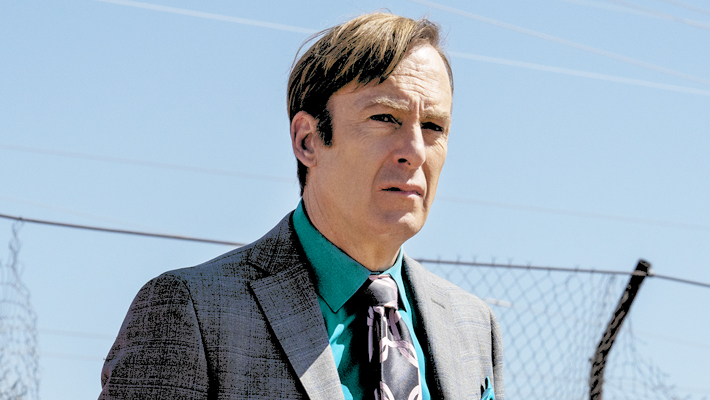
Are we ready? Are we, as a society, really ready? Are we ready to have the hard conversation about whether Better Call Saul is better than Breaking Bad, the show it spun-off from a few years back, the one that went down as a top tier all-time television drama? I’m not sure. I think some of it depends on how this show brings it all home. But the fact that this is not a laughable proposition anymore, the fact that it’s defensible and worthy of a conversation… that already says a lot.
This most recent season might have been its best yet. Sweet rascal Jimmy McGill has full-on broken bad as Saul Goodman. Mike Ehrmantraut is grunting his way up Gus Fring’s criminal organization. These are the things viewers have been waiting to see ever since the prequel was announced. There’s a reasonable argument to be made they’re not even the best parts of the show anymore. This sucker is just loaded with quality universe-building. Rhea Seehorn has turned Kim Wexler — Jimmy’s partner in more ways than one — into the best character on the show, and the one whose future is most interesting. Michael Mando has taken Nacho from a mid-level drug dealer to a truly sympathetic sweetheart who just wants out. And then the show went and introduced Tony Dalton as Lalo Salamanca, a grinning, charming, shockingly athletic psychopath, and the best villain in this show or its predecessor. The embarrassment of riches on display is borderline gluttonous.
Things are about to get very sad on Better Call Saul. There’s no way around it, really. Watching it happen is going to suck, which also says a lot. We all care enough about the silly spin-off about the goofy lawyer from Breaking Bad that we’re going to let it break our hearts. Can’t do much better than that. — Brian Grubb







